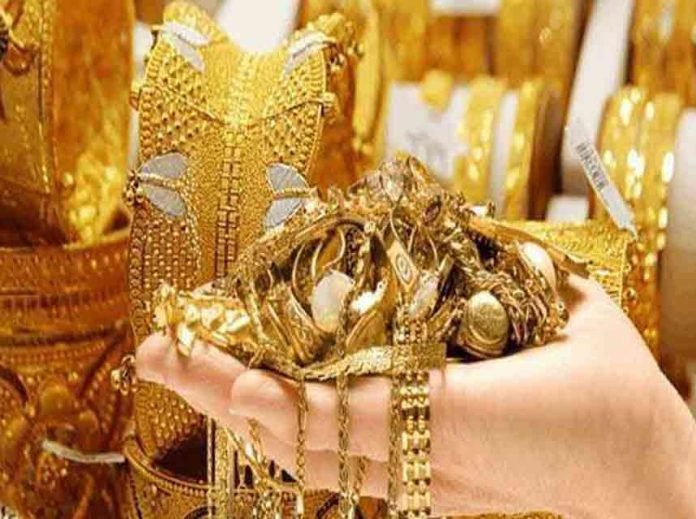INVC NEWS
Mumbai – : In the wake of the Central Bank’s decision to phase out 2000 notes, a remarkable surge in gold demand has been observed across the country. People are now rushing to convert their 2000 rupee notes into the precious metal, driving up the price of gold by 10-15%. In major cities like New Delhi, Gujarat, Mumbai, and Kolkata, the current rate of gold stands between 65,000 to 70,000 rupees per 10 grams, a significant increase from the previous price of 60,000 rupees.
However, due to Know Your Customer (KYC) norms, the actual purchase of gold against 2000 rupee notes has been relatively low in the past couple of days. Jewelers are cautiously adhering to these norms, and as a result, some are charging a premium of 10-15% for gold purchases made with 2000 rupee notes. It is important to note that this practice is predominantly being carried out by unorganized sector traders, while the organized sector businessmen are unable to engage in such transactions.
Saiyam Mehra, the chairman of the All India Gems and Jewelry Domestic Council, highlighted the overwhelming number of inquiries received for purchasing gold or silver using 2000 rupee notes. This increased interest was evident in the showrooms, with more customers visiting on Saturdays. However, due to the strict KYC norms, the actual number of purchases made has remained relatively low.
In response to changing customer preferences, traders have observed a growing trend toward digital transactions. Consequently, the withdrawal of 2000 rupee notes is unlikely to significantly impact the jewelry business. Customers are embracing digital platforms, opting for online transactions and digital payments, which have gained popularity in recent years.
This evolving landscape presents both challenges and opportunities for the jewelry industry. Jewelers need to adapt to the changing customer behavior by providing convenient digital payment options and ensuring a seamless online shopping experience. Establishing a strong online presence and leveraging digital marketing strategies will be crucial for jewelers to remain competitive in this dynamic market.
The Impact of Phasing Out 2000 Notes
The decision to phase out 2000 rupee notes has stirred a wave of economic adjustments. While the move aims to curb corruption, counterfeit currency, and the black economy, it has also triggered several consequences in different sectors. One notable repercussion is the increased demand for gold, as people seek to convert their 2000 rupee notes into tangible assets.
Gold has always held a special place in Indian culture and serves as a symbol of wealth and prosperity. In times of economic uncertainty, it becomes a preferred investment option for many individuals. The phasing out of 2000 rupee notes has created a sense of urgency among the public to safeguard their monetary value by investing in gold.
Opportunities and Challenges for the Jewelry Industry
While the surge in demand for gold presents a significant opportunity for the jewelry industry, jewelers must navigate the complexities of the evolving market. One crucial aspect is ensuring compliance with KYC norms to maintain transparency and adhere to regulatory requirements. By doing so, they can instill trust and confidence in customers, thereby encouraging more individuals to invest in gold.
Moreover, as customers increasingly embrace digital transactions, jewelers must embrace technology and provide a seamless online shopping experience. This includes developing user-friendly websites, optimizing their online presence for search engines, and offering secure payment gateways. By integrating digital solutions, jewelers can expand their reach beyond physical stores and tap into the vast potential of e-commerce.













